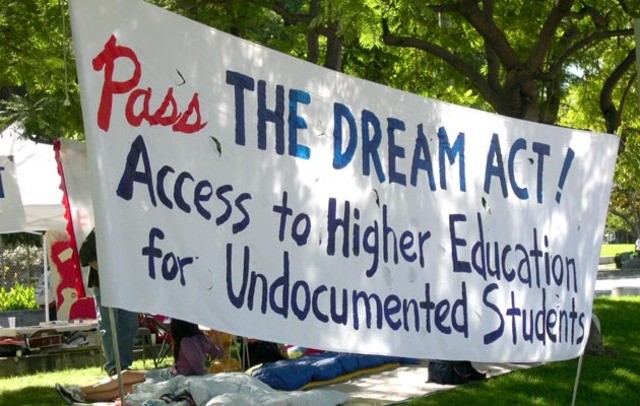
Nineteen U.S. states offer undocumented people tuition equity at state colleges and universities. Perhaps not unsurprisingly, Tennessee isn’t one of them.
Some states with Republican governors — including New Jersey and Texas — have passed laws offering in-state tuition to undocumented students. It’s time for Tennessee to move into the fold and make every educational opportunity available to all students.
Tuition equity means anyone who lives in the state, regardless of their immigration status, pays in-state tuition to study at our state institutions of higher education.
As a rule, out-of-state tuition is paid by people who live … out of state. It is similar to a tax against those who do not pay into state coffers but hope to use scarce and expensive educational resources. On average, out-of-state tuition is three times more expensive than in-state tuition.
By forcing the undocumented to pay out-of-state rates, Tennessee essentially applies a double tax, because — it’s important to remember — they already pay taxes. Undocumented people pay sales tax just like the rest of us. And, their rents help cover landlords’ annual property tax bills. Those with taxpayer identification cards pay into our social security system with almost no opportunity of ever receiving the program’s benefits.
Since 31 states require undocumented people to pay a 300 percent markup over the book tuition rates at public schools, it should come as no surprise that just 10 percent of the roughly 45,000 kids who graduate from high school each year without proper documentation — the so-called “Dream Act kids” — actually enroll in college. Private banks typically won’t loan these young people money, and federal financial aid is unavailable, thus creating serious structural hurdles on the road to higher education.
The Dream Act kids, the young people who came here as children in the arms of their parents, must be given equal opportunity for educational advancement. Sooner or later, these people’s immigration statuses will be regularized — hopefully soon, through congressional action. Moderate House Republicans, including Speaker John Boehner, would like to pass some sort of immigration reform before the November 2014 election. However, they’ve been thoroughly thwarted by vocal, reactionary members of their own caucus.
Regardless of what happens in Washington, The Tennessee Board of Regents, the entity tasked with setting fiscal policy for many of our colleges and universities, should align our state with the 19 states that already offer in-state tuition to undocumented students. We need more, not less, access to higher education for all people living in Tennessee. State officials need to work creatively to ensure affordable education for the people of this state, without resorting to discrimination. Where people were born or how they arrived in the U.S. should never prevent access to higher education.
In addition to opportunity, tuition equity offers hope for a better life. Offering tuition equity to the undocumented represents no additional cost to the state since students pay the same state-sanctioned tuition rate as everyone else. Right now, there are about 14,000 young people who could benefit from tuition equity in Tennessee.
As of this writing, about 4,000 Tennesseans have applied for Deferred Action for Childhood Arrivals — a program authorized by President Obama in 2012 by executive order. This order offers undocumented people the opportunity for work and freedom from fear of deportation — but only for two years. Only Congress can write a new law permanently regularizing the status of these kids, and we believe that will happen soon, though unfortunately not through a large, comprehensive immigration overhaul. Young people who would benefit from passage of a Dream Act will soon be entering the workforce. They deserve and need the training of our higher education system. The embattled governor of New Jersey apparently knows this, and so does the memory-challenged governor of Texas.
Let’s pull away from the pack of 31, join the enlightened 19, and move into the 21st century by offering tuition equity for all who want to study here in Tennessee. Bryce Ashby is a Memphis-based attorney and board member at Latino Memphis Inc. Michael J. LaRosa is an associate professor of history at Rhodes College.